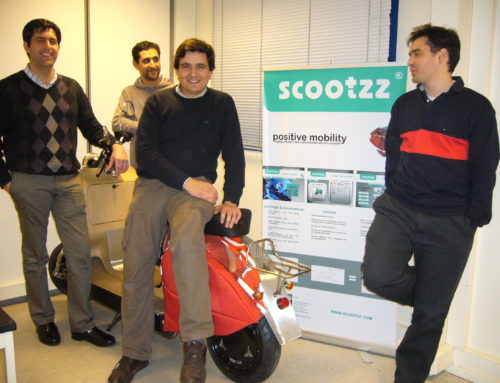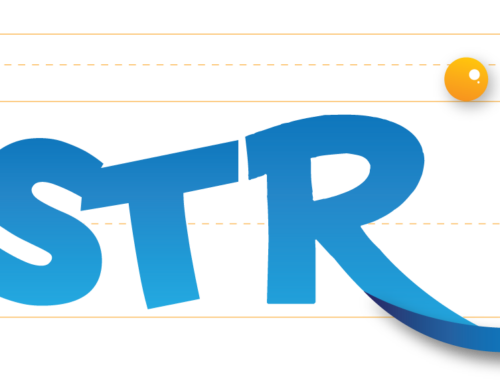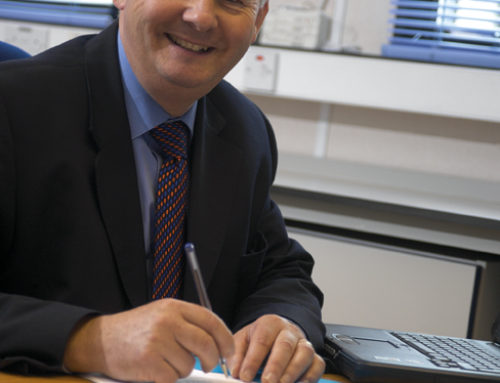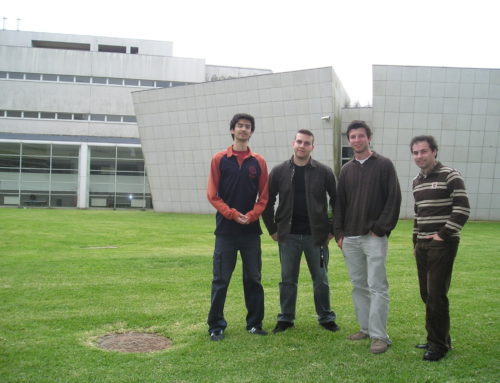In September 2010 the MIETE introduces it its curricula the topic of Theatrical Improvisation. The relationship between the ability to improvise and the propensity for entrepreneurship is known and in this interview we talk the two teachers of MIETE Creativity Course: Inês Guedes de Oliveira, a professor at the U. Aveiro,, and Victor Briga, trainer of creativity and communication through theatre improvisation techniques. We are most thankful to both for this interview.
MIETE-BLOG: This was, for both, a new experience to lecture Creativity and Improvisation in an Entrepreneurship Programme. How important is it, for our students to master the techniques taught in this course?
 Inês Guedes Oliveira: Creativity is a human trait. It cannot be taught, but, as with intelligence, Creativity is likely to be developed and enhanced. There is no single definition for creativity. Each author defines it in different ways according to his own background. There is, however, a consensus in accepting that creativity is multifaceted and that in itself comprises many other abilities such as imagination, originality, fantasy, inventiveness, lateral thinking, humour, playfulness, and others. Fostering creativity is promoting these and other capabilities that each of us has within him or herself, and that is more or less developed.
Inês Guedes Oliveira: Creativity is a human trait. It cannot be taught, but, as with intelligence, Creativity is likely to be developed and enhanced. There is no single definition for creativity. Each author defines it in different ways according to his own background. There is, however, a consensus in accepting that creativity is multifaceted and that in itself comprises many other abilities such as imagination, originality, fantasy, inventiveness, lateral thinking, humour, playfulness, and others. Fostering creativity is promoting these and other capabilities that each of us has within him or herself, and that is more or less developed.
The most important thing for me when I help someone to develop their creative abilities is to promote a creative behaviour that I would define as an attitude of questioning, of critical observation and of being open to new situations. It is about helping each one of us to get rid of stereotypes and locks. It is about finding new approaches and new perspectives to look at the issues we have at hand. It is about developing the capabilities inherent to being creative.
In this sense, working on the creative skills or the creative attitude with someone who wants to be an entrepreneur is, for sure, an important piece of the puzzle. This was in our minds when we structured the course sylabus: to create challenging strategies seeking a variety of answers, always assisted by different supporting creative techniques.
 Vítor Briga: Einstein said that in moments of crisis, imagination is more important than knowledge. I believe this sentence portrays extremely well the need to train our entrepreneurs’ creative skills, as our market no longer accepts “more of the same”; it wishes to be surprised with new products, new services, and new communicational approaches.
Vítor Briga: Einstein said that in moments of crisis, imagination is more important than knowledge. I believe this sentence portrays extremely well the need to train our entrepreneurs’ creative skills, as our market no longer accepts “more of the same”; it wishes to be surprised with new products, new services, and new communicational approaches.
Whilst innovation is widely spoken about, one often forgets that we cannot have innovation without creativity. In fact, although we are all creative beings, studies have shown that over time, and when reaching a certain age, this creativity becomes dormant with the need to adapt socially and to live up to the expectations of teachers, parents, and society as a whole. Following the norm is easier than having to face the consequences of rejection or of the mistakes which may occur when being creative.
In an article published in the Harvard Business Review, called “The Innovator’s ADN”, Hal B. Gregersen et al studied the habits of 25 businessmen and surveyed more than 3000 executives and 500 individuals who had set up innovative companies or had launched products which had made a difference in the market. The findings showed that the innovative businessmen tended to look at the world “outside the box”; they readily and eagerly make new acquaintances and participate in experiences; they have boundless curiosity, even when their questions seem to be illogical, and they have the most varied of social relationships.
In other words, observing, questioning, associating, experimenting, and establishing relationships with others are the five qualities that make up the personality of people who have set up innovative companies, such as Steve Jobs, from Apple.
However, the most extraordinary thing about this study is the findings that these very same qualities are the ones we can find in a four-year old child! Therefore, training creative skills is about awakening the “rebel” in adults, awakening the spontaneity and freedom they had as children, and giving them the tools to create value with those ideas, transforming them into innovation.
MIETE-BLOG: The Creativity Course exists in MIETE since 2007, and Creativity lectures exist in MIETE since the very beginning in 2004. The Innovation was the introduction of “Improvisation”. Which behaviour dimensions are worked with our students in this course and what was the value brought in by introducing “Improvisation”.
Inês Guedes Oliveira: Creativity can be analysed and developed as a process and as product. To speak about the process is to talk about the inherent capabilities of the human being. To speak about the product is to talk about something that goes beyond the your inner self and expose yourself to others.
Another issue of major importance in the development of creativity is to make each one capable of responding, “here and now”, to any situation they face in a new and innovative way. In this sense, the ability to improvise and to communicate must go hand in hand with creativity. It is not enough to have different ideas, one must know how to convey those ideas to others in a confident and self-assured way.
Thus, the improvisation that was introduced in this course has brought, in my opinion, added value to the development of creative attitude. It allowed each student to have the training needed to deal with unforeseen situations and to know how to respond and communicate in an original way and safely.
Vítor Briga: We do not learn how to improvise at school, however, the work market demands a constant adaptation to change; it demands a great attention to reality, to know how to make decisions based on opportunities which emerge at every moment, to abandon plans when they are no longer useful. Theatre improvisation techniques help our entrepreneurs to develop, among others, their skills in:
– Being attentive and focused on the “Here and Now”, saying yes to the opportunities that come up;
– Listening and observing others without bias;
– Trusting that the team will be able to solve a certain problem in a given time;
– Having spontaneous, intuitive, useful and creative ideas;
– Learning that one cannot control everything;
– Adapting to different realities;
– Thinking quickly and acting under pressure.
I believe that including theatrical Improvisation in a Business Master’s is an extraordinary innovation, and an example that should be followed in degrees of other areas, as it is a skill needed to be excellent in any activity of the world today.
MIETE-BLOG: I would conclude by thanking, again, your most generous contribution for this interview. This MIETE evolution follows the trend of World Class Entrepreneurship and Business Schools such as the Babson College in the USA ranked in Top Schools in Entrepreneurship.




